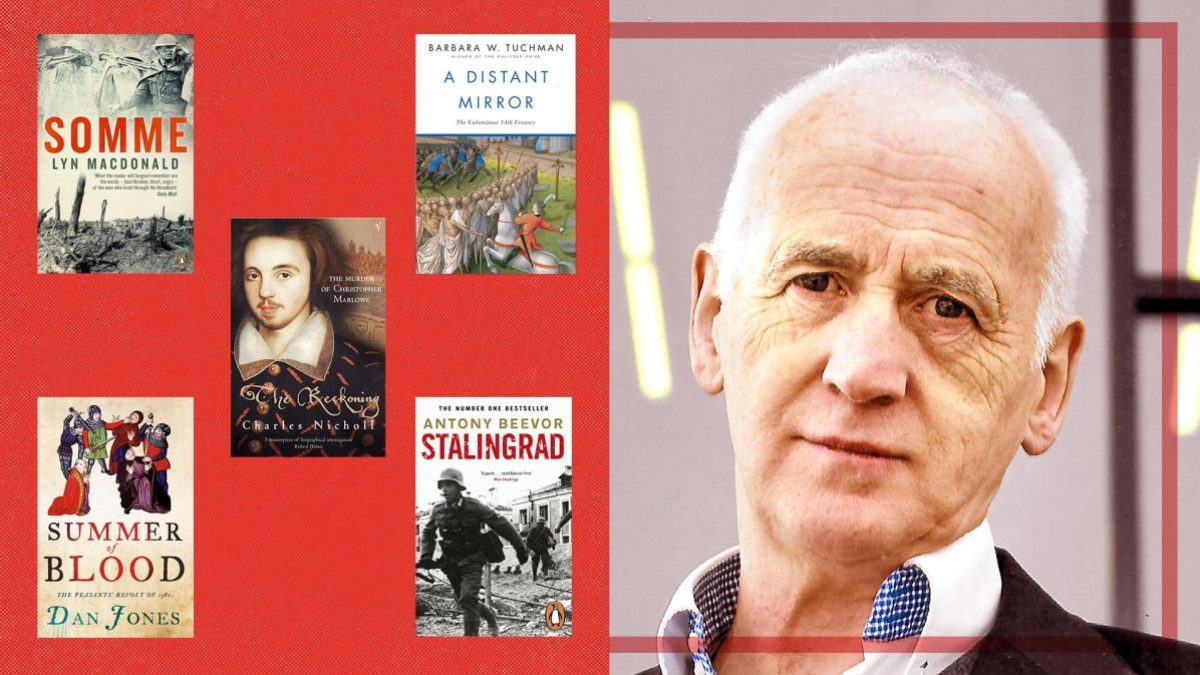Looking for a nonfiction book which will change how you think about the past? Allow the Horrible Histories author to recommend his favourites
Senior Writer and Commissioning Editor
Terry Deary has made history unforgettable. As the writer of the Horrible Histories series, he transformed dry dates and dusty facts into gruesome, hilarious, and wildly entertaining stories for children. Then, in last year’s A History of Britain in Ten Enemies, he transformed our past into a gruesome, hilarious, and wildly entertaining book for adults.
With over 350 titles to his name and more than 38 million books sold worldwide, Deary has become one of the most influential figures in historical storytelling. But which history books have most inspired the man who made history fun? Here, he reveals his top five favourites…
The Reckoning: The Murder of Christopher Marlowe by Charles Nicholl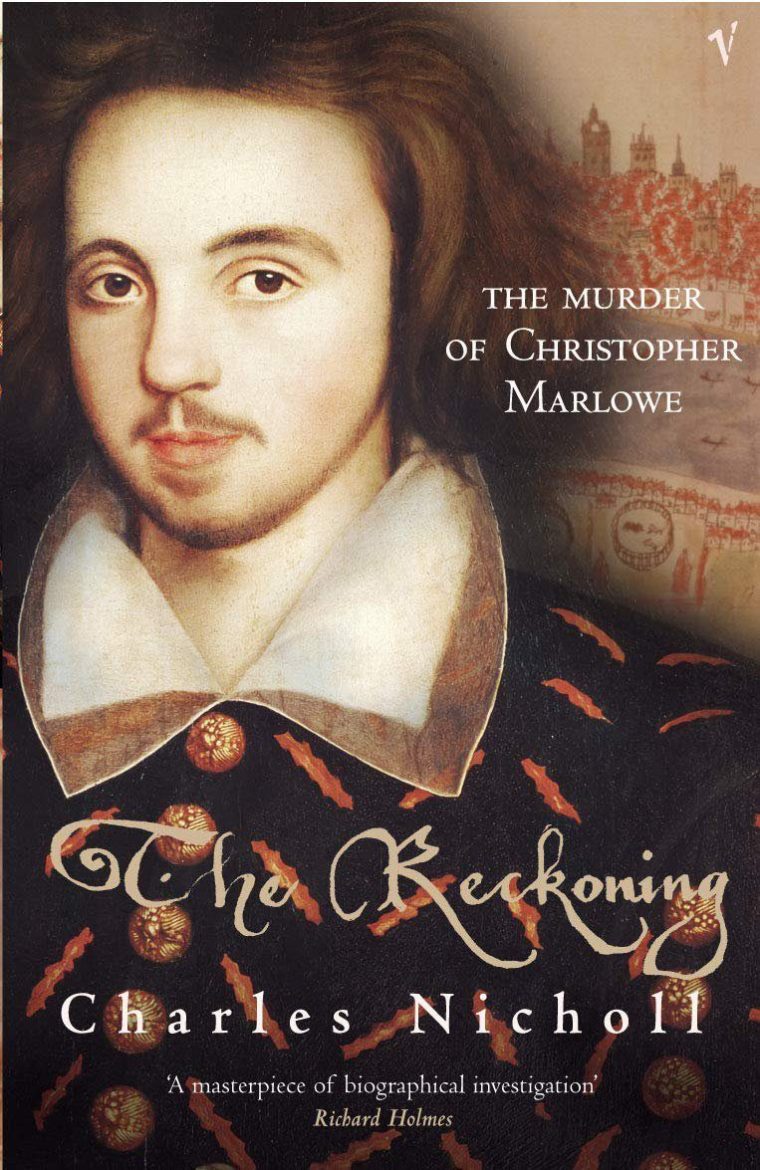
“My own tastes in reading are largely murder mysteries. Then a friend recommended The Reckoning and I discovered that true historical mysteries can be just as engaging as the fiction I love.
“Nichol’s solution to Kit Marlowe’s famously mysterious death in 1593 probably wouldn’t convince today’s Crown Prosecution Service, but it shines a light on aspects of the Elizabethan world (or under-world) that I never suspected existed. His original research into primary sources is so impressive it revealed to me how the best of the best historians’ minds work.”
Vintage, £14.99
Stalingrad by Antony Beevor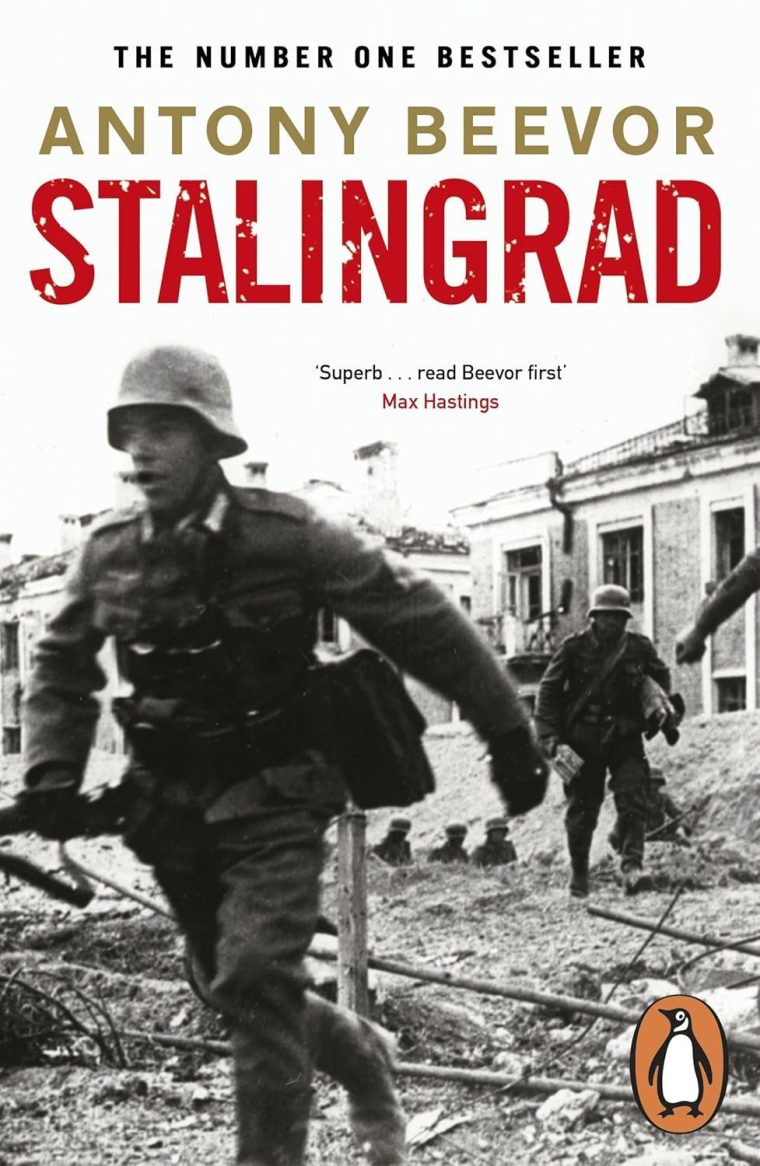
“In my History of Britain in Ten Enemies, I reflect on the way the average Briton’s view of the present is distorted by Anglo-centric teaching of history. It’s difficult to find international peace while each country believes it is the white knight of history, slaying the other nations that are the fire-breathing aggressors.
“As such, Russia was an enigma to me until I read Stalingrad. Any nation living through that 1940s hell is going to have scars it carries with it – and affects its psyche – for generations. For Britain it was the horror of the Blitz that my parents experienced – but I discovered Stalingrad and the Russian experience of defying and surviving an invasion was worse. Beevor’s book gives me some understanding of why Russia is the way it is.”
Penguin, £12.99
Summer of Blood: The Peasants’ Revolt of 1381 by Dan Jones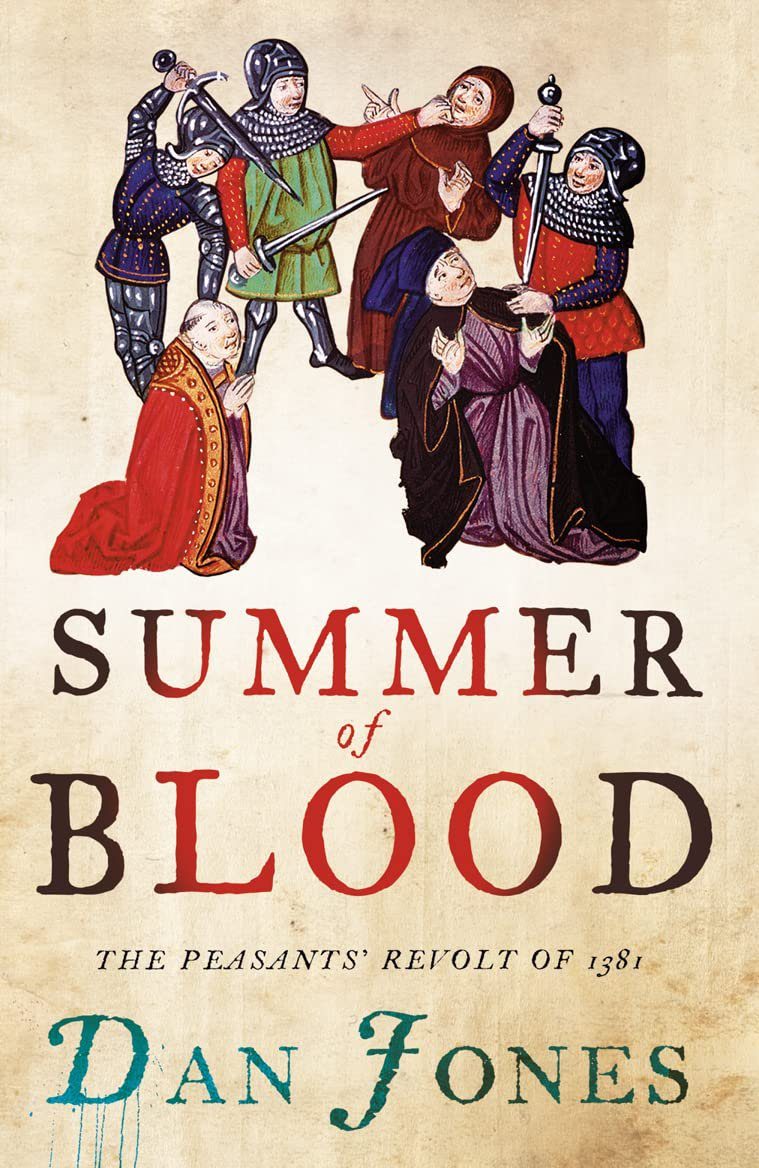
“My history education through the early sixties taught me that our knowledge of the past is all about monarchs and wars, dates and great events. I was misinformed. Those leaders and their lives are a tiny percentage of the story of human existence. The majority of people are like me: peasants. They have their lives and struggles, triumphs and disasters, too – they simply aren’t so well recorded in the annals.
“The Peasants’ Revolt opened my eyes to the realities of the past and how the forgotten ‘little’ people of the past have their breaking points, too. Dan Jones also demonstrated the dangers of simplifying the past to fit onto a page of a school history text. Yes, the Poll Tax did play a part in sparking the revolt. But it was also about people and real personalities in the underclasses. And it asks the vital question, what would make me snap and revolt?”
HarperCollins, £12.99
A Distant Mirror: The Calamitous 14th Century by Barbara Tuchman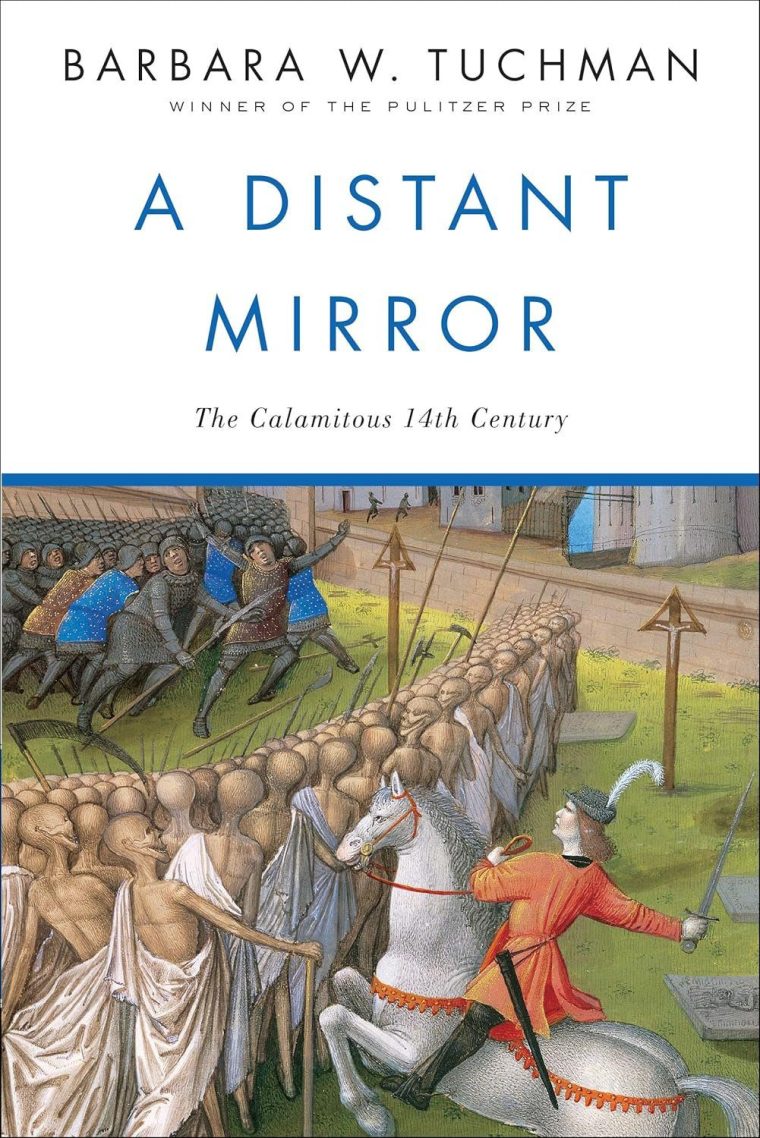
“As an established children’s fiction author by the early 90s, I was commissioned to write non-fiction. My job was to present facts to children in a ‘child-friendly voice’. So much non-fiction for children had been written by ‘experts’ and ‘academics’ and was inaccessible to reluctant readers. I needed to start reading non-fiction myself and came across A Distant Mirror.
“Having suffered impenetrable prose in school texts, I was thrilled to find there are historians like Tuchman who can engage, entertain and enlighten without making reading about the 14th century a chore. Academic historians writing in formal prose have their place, but there is now a wealth of accessible history writing to bring the general reader pleasure as well as edification and stimulating ideas.”
Penguin, £14.99
Somme by Lyn Macdonald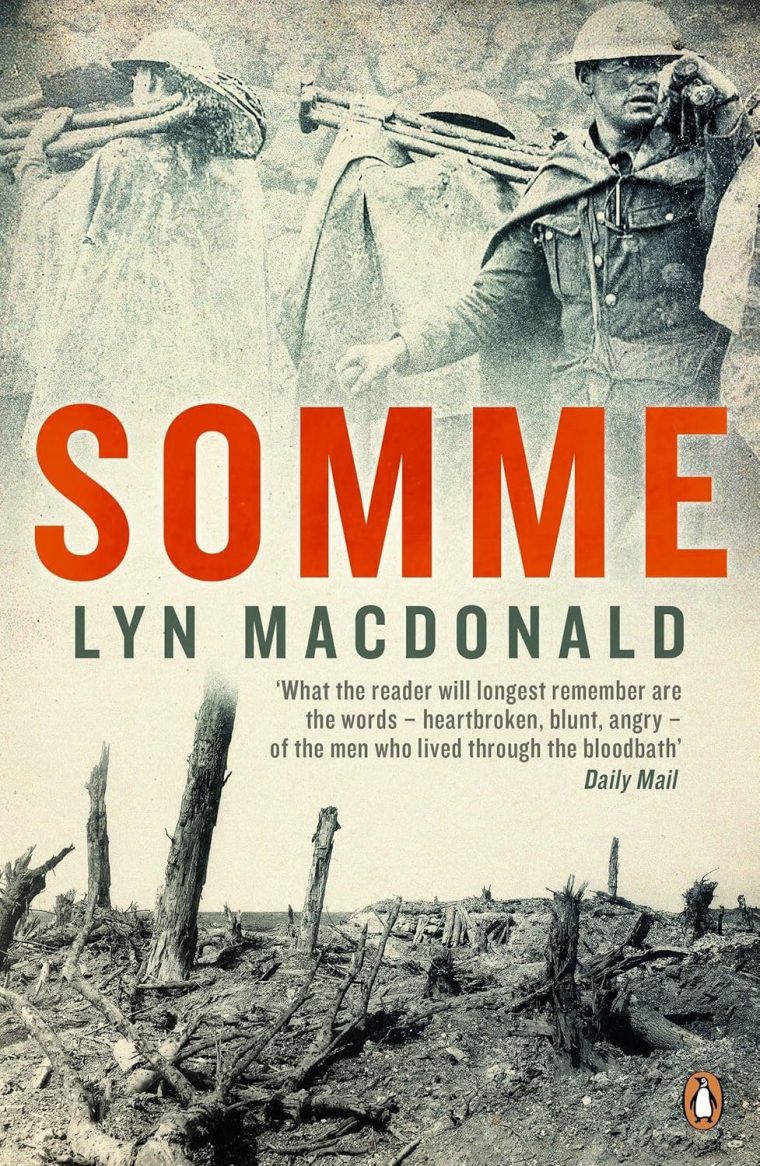
“Alexander Pope said, ‘The proper study of mankind is man’ (with apologies to women, but we know what he means). Folk memories of the World War One battle at the Somme have become about statistics, but Macdonald’s book reminded me that a thousand dead is not a tragedy – it is a thousand tragedies. And for every Allied family that was left grieving a dead man, there was a family in the Central Powers suffering the same way.
“History through eyewitnesses that Macdonald interviewed before they died reminded me that history is not about statistics, it is about human experience. It is about me and you – why we behave the way we do. It is about self-knowledge. It is why we need history books.”
Penguin, £12.99
A History of Britain in Ten Enemies is out now in paperback (Penguin, £10.99). Deary’s debut novel Actually, I’m a Murderer is published 12th June (Constable, £18.99)
